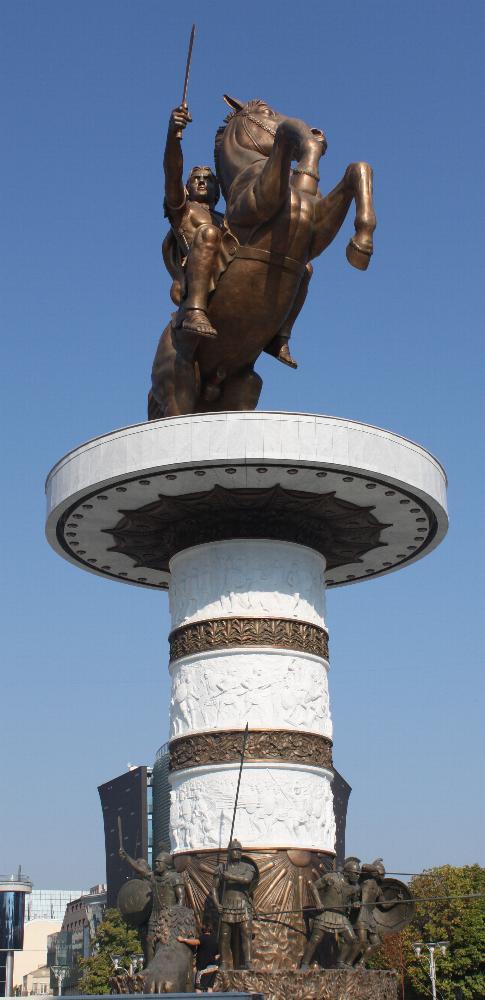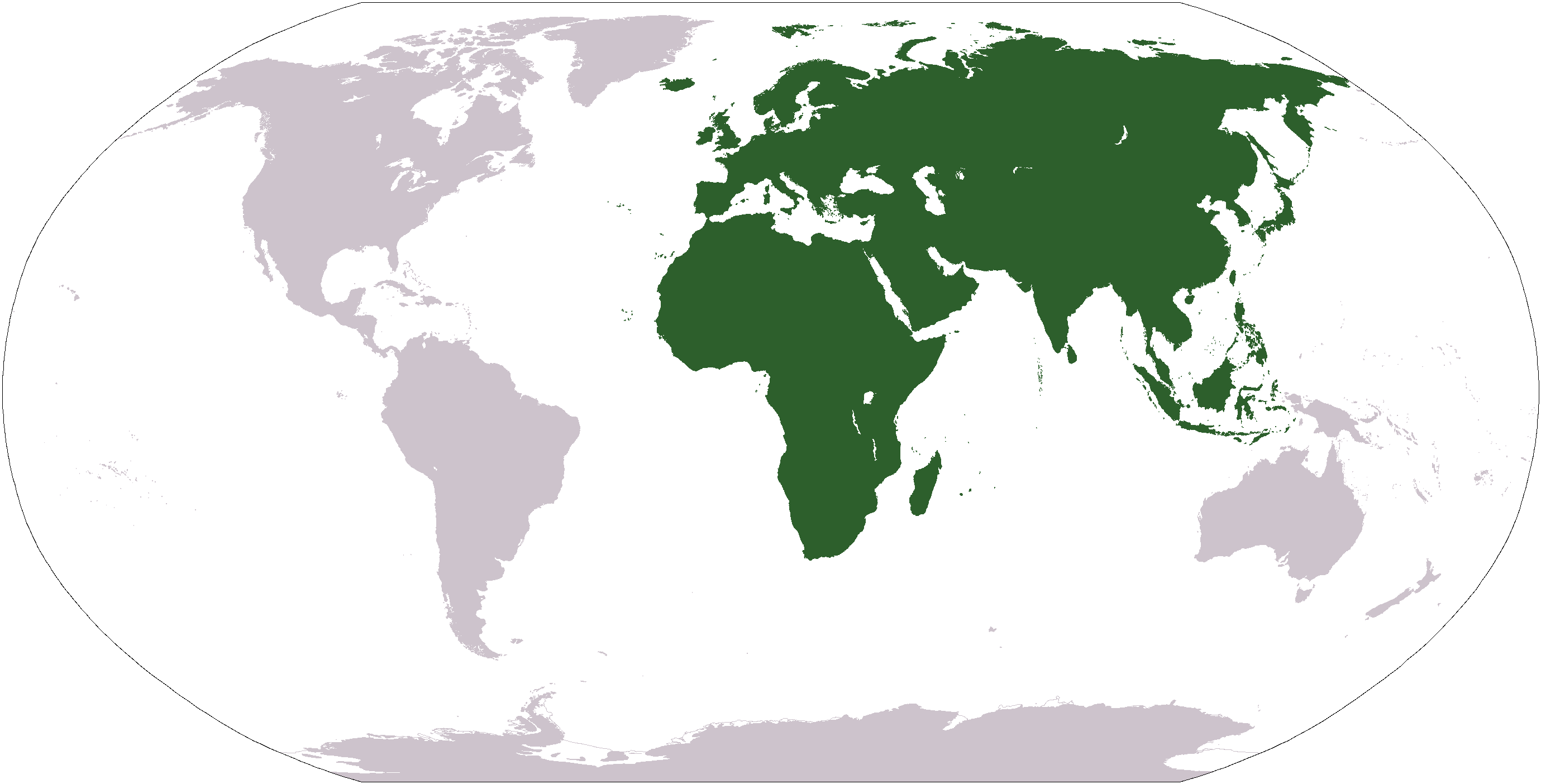|
Antiquization
Antiquization ( mk, антиквизација), otherwise known as ancient Macedonism ( mk, links=no, антички македонизам), is a term used mainly to critically describe the identity policies conducted by the nationalist VMRO-DPMNE-led governments of North Macedonia in the period between 2006 and 2017. In the contemporary Macedonian discourse, antiquization refers to the identitarian policies based on the assumption that there is a direct link between today's ethnic Macedonians and Ancient Macedonians.Vangeli, Anastas (2011): Nation-building ancient Macedonian style: the origins and the effects of the so-called antiquization in Macedonia. In ''Nationalities Papers'' 39 (1), p. 13. The politics of the ex-Yugoslav era therefore not only embrace the revival of the ancient heritage of the Ancient Macedonians, including the heritage of Philip II and his son Alexander the Great, but also seek to depict a coherent continuity of history and descendancy from the ancien ... [...More Info...] [...Related Items...] OR: [Wikipedia] [Google] [Baidu] |
VMRO-DPMNE
Internal Macedonian Revolutionary Organization – Democratic Party for Macedonian National Unity ( mk, Внатрешна македонска револуционерна организација – Демократска партија за македонско национално единство, simplified as VMRO-DPMNE; mk, ВМРО–ДПМНЕ) is a political party in North Macedonia and one of the two major parties in the country, the other being the Social Democratic Union of Macedonia. The party has presented itself as Christian-democratic, but it is considered nationalist. VMRO-DPMNE's support is based on ethnic Macedonians with some exceptions. The party claims that their goals and objectives are to express the tradition of the Macedonian people on whose political struggle and concepts it is based. Nevertheless, it has formed multiple coalition governments with ethnic minority parties. Under the leadership of Ljubčo Georgievski in its beginning, the party supp ... [...More Info...] [...Related Items...] OR: [Wikipedia] [Google] [Baidu] |
Macedonian Nationalism
Macedonian nationalism (, ) is a general grouping of nationalist ideas and concepts among ethnic Macedonians that were first formed in the late 19th century among separatists seeking the autonomy of the region of Macedonia from the Ottoman Empire. The idea evolved during the early 20th century alongside the first expressions of ethnic nationalism among the Slavs of Macedonia. The separate Macedonian nation gained recognition after World War II when the "Socialist Republic of Macedonia" was created as part of Yugoslavia. Afterwards the Macedonian historiography has established historical links between the ethnic Macedonians and events and Bulgarian figures from the Middle Ages up to the 20th century. Following the independence of the Republic of Macedonia in the late 20th century, issues of Macedonian national identity have become contested by the country's neighbours, as some adherents to aggressive Macedonian nationalism, called ''Macedonism'', hold more extreme beliefs such as ... [...More Info...] [...Related Items...] OR: [Wikipedia] [Google] [Baidu] |
Pseudohistory
Pseudohistory is a form of pseudoscholarship that attempts to distort or misrepresent the historical record, often by employing methods resembling those used in scholarly historical research. The related term cryptohistory is applied to pseudohistory derived from the superstitions intrinsic to occultism. Pseudohistory is related to pseudoscience and pseudoarchaeology, and usage of the terms may occasionally overlap. Although pseudohistory comes in many forms, scholars have identified many features that tend to be common in pseudohistorical works; one example is that the use of pseudohistory is almost always motivated by a contemporary political, religious, or personal agenda. Pseudohistory also frequently presents sensational claims or a big lie about historical facts which would require unwarranted revision of the historical record. A common feature of pseudohistory is an underlying premise that there is a conspiracy among scholars to promote so-called "mainstream history" over ... [...More Info...] [...Related Items...] OR: [Wikipedia] [Google] [Baidu] |
Greeks
The Greeks or Hellenes (; el, Έλληνες, ''Éllines'' ) are an ethnic group and nation indigenous to the Eastern Mediterranean and the Black Sea regions, namely Greece, Cyprus, Albania, Italy, Turkey, Egypt, and, to a lesser extent, other countries surrounding the Mediterranean Sea. They also form a significant diaspora (), with Greek communities established around the world.. Greek colonies and communities have been historically established on the shores of the Mediterranean Sea and Black Sea, but the Greek people themselves have always been centered on the Aegean and Ionian seas, where the Greek language has been spoken since the Bronze Age.. Until the early 20th century, Greeks were distributed between the Greek peninsula, the western coast of Asia Minor, the Black Sea coast, Cappadocia in central Anatolia, Egypt, the Balkans, Cyprus, and Constantinople. Many of these regions coincided to a large extent with the borders of the Byzantine Empire of the late 11th cent ... [...More Info...] [...Related Items...] OR: [Wikipedia] [Google] [Baidu] |
Macedonia (ancient Kingdom)
Macedonia (; grc-gre, Μακεδονία), also called Macedon (), was an ancient kingdom on the periphery of Archaic and Classical Greece, and later the dominant state of Hellenistic Greece. The kingdom was founded and initially ruled by the royal Argead dynasty, which was followed by the Antipatrid and Antigonid dynasties. Home to the ancient Macedonians, the earliest kingdom was centered on the northeastern part of the Greek peninsula,. and bordered by Epirus to the west, Paeonia to the north, Thrace to the east and Thessaly to the south. Before the 4th century BC, Macedonia was a small kingdom outside of the area dominated by the great city-states of Athens, Sparta and Thebes, and briefly subordinate to Achaemenid Persia. During the reign of the Argead king PhilipII (359–336 BC), Macedonia subdued mainland Greece and the Thracian Odrysian kingdom through conquest and diplomacy. With a reformed army containing phalanxes wielding the ''sarissa'' pike, PhilipII d ... [...More Info...] [...Related Items...] OR: [Wikipedia] [Google] [Baidu] |
Hellenistic Period
In Classical antiquity, the Hellenistic period covers the time in Mediterranean history after Classical Greece, between the death of Alexander the Great in 323 BC and the emergence of the Roman Empire, as signified by the Battle of Actium in 31 BC and the conquest of Ptolemaic Egypt the following year. The Ancient Greek word ''Hellas'' (, ''Hellás'') was gradually recognized as the name for Greece, from which the word ''Hellenistic'' was derived. "Hellenistic" is distinguished from "Hellenic" in that the latter refers to Greece itself, while the former encompasses all ancient territories under Greek influence, in particular the East after the conquests of Alexander the Great. After the Macedonian invasion of the Achaemenid Empire in 330 BC and its disintegration shortly after, the Hellenistic kingdoms were established throughout south-west Asia ( Seleucid Empire, Kingdom of Pergamon), north-east Africa ( Ptolemaic Kingdom) and South Asia ( Greco-Bactrian Kingdom, Indo-Greek ... [...More Info...] [...Related Items...] OR: [Wikipedia] [Google] [Baidu] |
Old World
The "Old World" is a term for Afro-Eurasia that originated in Europe , after Europeans became aware of the existence of the Americas. It is used to contrast the continents of Africa, Europe, and Asia, which were previously thought of by their inhabitants as comprising the entire world, with the "New World", a term for the newly encountered lands of the Western Hemisphere, particularly the Americas. Etymology In the context of archaeology and world history, the term "Old World" includes those parts of the world which were in (indirect) cultural contact from the Bronze Age onwards, resulting in the parallel development of the early civilizations, mostly in the temperate zone between roughly the 45th and 25th parallels north, in the area of the Mediterranean, including North Africa. It also included Mesopotamia, the Persian plateau, the Indian subcontinent, China, and parts of Sub-Saharan Africa. These regions were connected via the Silk Road trade route, and they have a p ... [...More Info...] [...Related Items...] OR: [Wikipedia] [Google] [Baidu] |
Ancient Macedonians
The Macedonians ( el, Μακεδόνες, ''Makedónes'') were an ancient tribe that lived on the alluvial plain around the rivers Haliacmon and lower Vardar, Axios in the northeastern part of Geography of Greece#Mainland, mainland Greece. Essentially an Ancient Greece, ancient Greek people,; ; ; ; ; ; ; ; ; ; ; ; ; ; ; ; ; ; ; . they gradually expanded from their homeland along the Haliacmon valley on the northern edge of the Greek world, absorbing or driving out neighbouring non-Greek tribes, primarily Thracians, Thracian and Illyrians, Illyrian.. They spoke Ancient Macedonian language, Ancient Macedonian, which was perhaps a sister language, sibling Hellenic languages, language to Ancient Greek, Ancient Greek language, Greek, but more commonly thought to have been a dialect of Northwest Greek, Northwest Doric Greek; though, some have also suggested an Aeolic Greek classification. However, the Lingua franca, prestige language of the region during the Classical Greece, Classic ... [...More Info...] [...Related Items...] OR: [Wikipedia] [Google] [Baidu] |
Greek Language
Greek ( el, label=Modern Greek, Ελληνικά, Elliniká, ; grc, Ἑλληνική, Hellēnikḗ) is an independent branch of the Indo-European family of languages, native to Greece, Cyprus, southern Italy (Calabria and Salento), southern Albania, and other regions of the Balkans, the Black Sea coast, Asia Minor, and the Eastern Mediterranean. It has the longest documented history of any Indo-European language, spanning at least 3,400 years of written records. Its writing system is the Greek alphabet, which has been used for approximately 2,800 years; previously, Greek was recorded in writing systems such as Linear B and the Cypriot syllabary. The alphabet arose from the Phoenician script and was in turn the basis of the Latin, Cyrillic, Armenian, Coptic, Gothic, and many other writing systems. The Greek language holds a very important place in the history of the Western world. Beginning with the epics of Homer, ancient Greek literature includes many works of lasting impo ... [...More Info...] [...Related Items...] OR: [Wikipedia] [Google] [Baidu] |
Philip II Of Macedon
Philip II of Macedon ( grc-gre, Φίλιππος ; 382 – 21 October 336 BC) was the king ('' basileus'') of the ancient kingdom of Macedonia from 359 BC until his death in 336 BC. He was a member of the Argead dynasty, founders of the ancient kingdom, and the father of Alexander the Great. The rise of Macedon—its conquest and political consolidation of most of Classical Greece during his reign—was achieved by his reformation of the army (the establishment of the Macedonian phalanx that proved critical in securing victories on the battlefield), his extensive use of siege engines, and his utilization of effective diplomacy and marriage alliances. After defeating the Greek city-states of Athens and Thebes at the Battle of Chaeronea in 338 BC, Philip II led the effort to establish a federation of Greek states known as the League of Corinth, with him as the elected hegemon and commander-in-chief of Greece for a planned invasion of the Achaemenid Empire of Persia. Ho ... [...More Info...] [...Related Items...] OR: [Wikipedia] [Google] [Baidu] |








